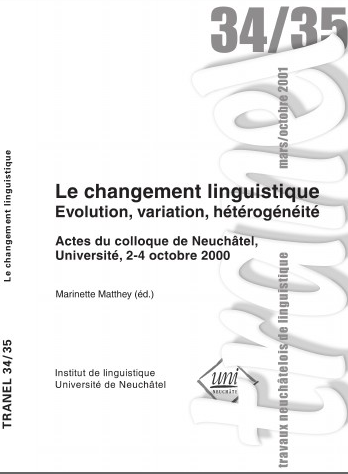La 'gheada' : un phénomène de variation phonétique, géolinguistique et socioculturelle du galicien
DOI :
https://doi.org/10.26034/tranel.2001.2558Résumé
«Gheada», a phonetical feature characteristic of certain areas of Galicia, unknown in Castilian and Portuguese, consists of the pronunciation of /g/ ([g], [G]) as [h]. This phonetic innovation, very widespread in western Galicia, has been traditionally stigmatised as a sign of rusticity and lack of culture, thus turning this phenomenon into a sociolinguistic marker. Absent from both formal speech and the media, and restricted to lower and working classes, «gheada» has been frequently used to typify some people (with a ridiculous or even grotesque look) who try to renounce to their mother tongue (Galician) in favour of the prestigious language (Castilian). Seventeen yeers after the passing of the Law of Linguistic Normalization (1983), «gheada» is «in fashion»: a change in representations is taking place little by little , with advances and regressions. This is evident from its non-stigmatised presence in a popular Galician television series as well as from its proud use by many local bands taking part in the «Rock Bravú» movement.Téléchargements
Publié-e
01-10-2001
Comment citer
Alen Garabato, M. C. (2001). La ’gheada’ : un phénomène de variation phonétique, géolinguistique et socioculturelle du galicien. Travaux neuchâtelois De Linguistique, (34-35), 219–232. https://doi.org/10.26034/tranel.2001.2558
Numéro
Rubrique
Article thématique


